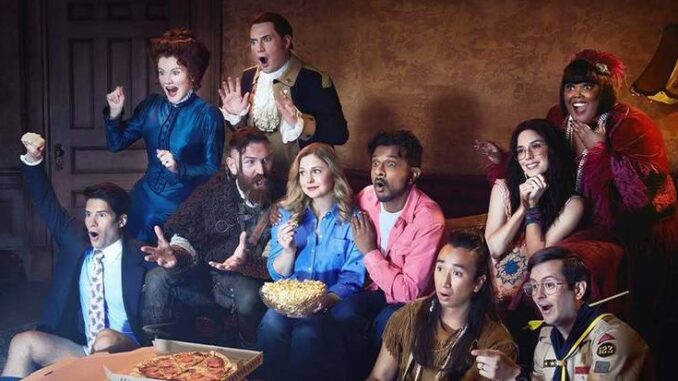
Beyond the Button: The Ghostly Cast Yearns for the Director's Chair
The stately Woodstone Manor, home to a gaggle of spectral residents on the hit sitcom Ghosts, has become synonymous with laughter, witty banter, and the occasional possession. But behind the slapstick and the centuries-old pettiness, lies a simmering desire: a yearning to transcend their on-screen roles and step behind the camera. The cast, a collection of talented actors breathing life into these historical figures, harbor dreams that extend far beyond memorizing lines and perfecting their comedic timing. They dream of crafting the story, of shaping the visual landscape, and of wielding the power to guide the narrative – they dream of directing.
For Danielle Pinnock, who embodies the ebullient and sharp-tongued Alberta Haynes, the desire to direct stems from a deep appreciation for the complexities of storytelling. "Alberta is such a force of nature," she confessed in a recent interview, her eyes sparkling with a passion that rivaled Alberta's stage presence. "Playing her has shown me how much a single character can influence the entire mood of a scene. But as a director, you get to orchestrate that influence, to paint the entire picture." Pinnock, known for her vibrant energy and impeccable comedic timing, envisions directing episodes that delve deeper into the historical context of Woodstone Manor, exploring the forgotten narratives of marginalized communities. Her vision is not just about laughs; it's about using comedy as a vehicle to illuminate hidden truths and give voice to the voiceless, a sentiment mirrored in her commitment to advocating for diverse representation in the industry.
Then there's Román Zaragoza, the charmingly optimistic Sasappis, who finds himself drawn to the technical aspects of filmmaking. "I've always been fascinated by the mechanics," he admitted, fiddling with the ghost-invisibility button on his prop. "The lighting, the camera angles, the way a scene is framed – it all contributes to the emotional impact." Zaragoza dreams of directing episodes that showcase the visual potential of the show, playing with special effects and employing innovative camera techniques to further blur the lines between the living and the spectral realms. His interest is not simply aesthetic; he wants to explore the psychological impact of these visual choices, drawing the audience deeper into the ghosts' emotional landscape. He envisions a darker, more introspective episode, utilizing his directorial skills to explore the isolation and lingering regrets that plague these trapped souls.
Even Rose McIver, the show's co-lead, who plays the pragmatic Samantha Arondekar, feels the pull of the director's chair. While she excels at anchoring the show with her grounded performance and relatable reactions to the ghostly antics, McIver recognizes the power inherent in directing. "As an actor, you're interpreting a character, bringing someone else's vision to life," she explained thoughtfully. "But as a director, you get to create that vision, to be the guiding force behind the entire production." Her ambition is to direct episodes that explore the dynamics between the living and the dead, focusing on the emotional complexities of their interactions and the challenges of navigating two vastly different realities. Her experience as a seasoned actor would undoubtedly lend itself to guiding her fellow cast members and fostering a collaborative environment on set.
The dreams of the Ghosts cast aren't just pipe dreams. They are fuelled by a genuine passion for storytelling, a deep understanding of their characters, and a burning desire to contribute to the show in a more profound and meaningful way. These actors, who have already brought so much joy and laughter to audiences around the world, are poised to take the next step in their careers, wielding the power of the camera to craft new narratives, explore complex themes, and further enrich the world of Woodstone Manor. They have already mastered the art of playing ghosts; now, they are ready to become the masters of their own stories, proving that even the spectral can have dreams that extend beyond the button and into the director's chair. Their ambition serves as a testament to the transformative power of creativity, reminding us that even in the realm of comedy, there is always room for growth, innovation, and the pursuit of new artistic horizons. The future of Ghosts is not just about the spectral antics unfolding on screen, but also about the evolving talents of its cast, poised to redefine their roles and leave an indelible mark on the world of television, one directed episode at a time.